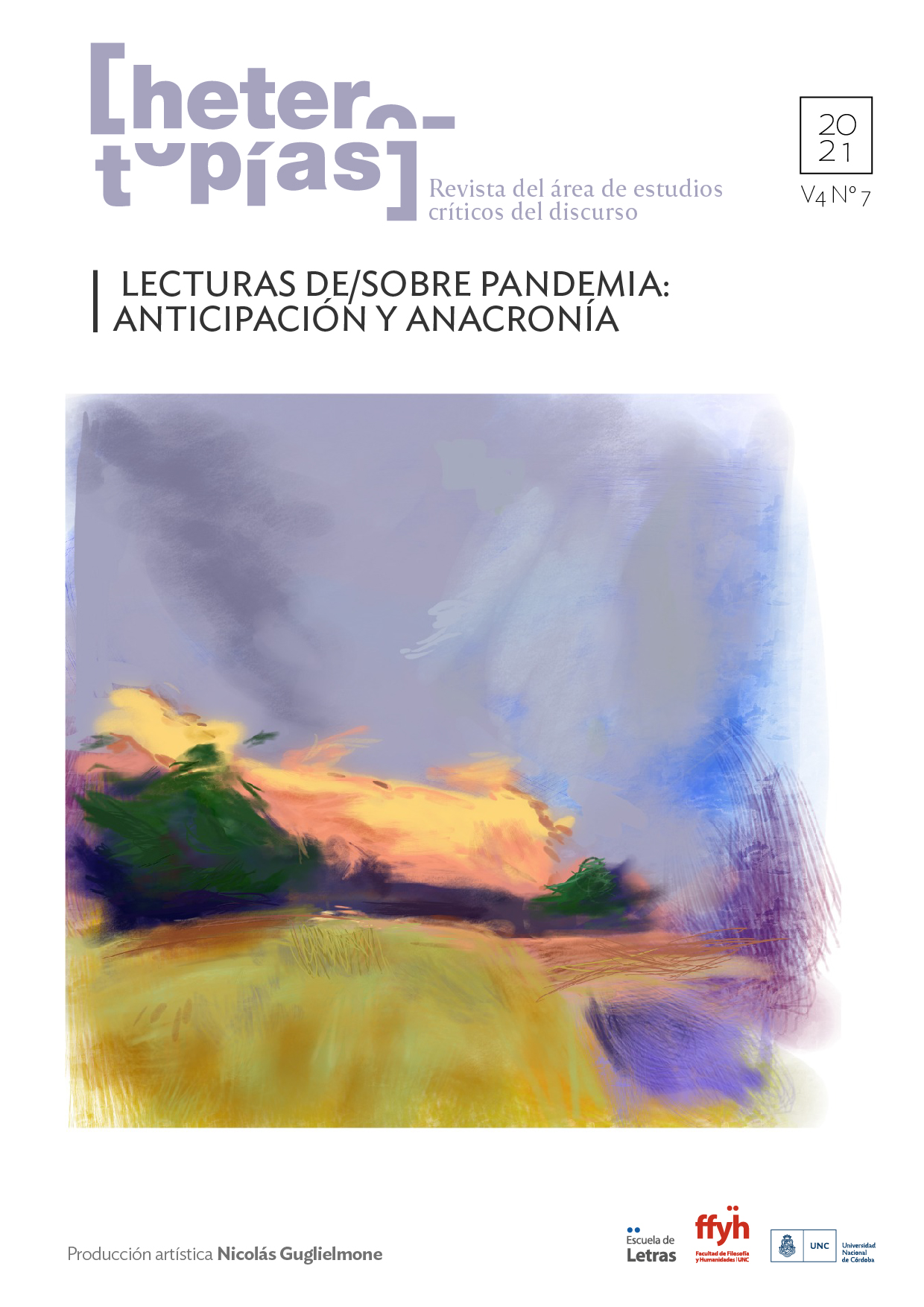The traps and the things: conversations betwen Ponge, Heidegger and Arendt.
Main Article Content
Abstract
The proposal of this article is to explore the possible conversation, in our opinion, so little investigated between Ponge and Heidegger. Regarding the underlying phenomenology that operates in both authors, we consider that the concern for things as things themselves present in them exceeds the epistemic question. Reading against the grain allows us to explore the limits and scope of their respective approaches, understanding that both positions feed into each other in a certain sense, although they reveal to each other the theoretical drawbacks they face. At first instance, the intention of the paper is to explore the boundary trap between the poetic (aesthetic) and ontologic issue. In this framework, we considered that the arendtian reading of Heidegger contribute to iluminate one of the most relevants problems of the heideggerian philosophy, and regarding the topic of the things, clarify the particular caracter of his phenomenology from the concept of one-self.
For this analysis, we will take into account above all some main sources, namely, Heidegger's lecture entitled “La cosa” (1994a), Ponge’s work, De parte de las cosas (2017), and the Arendt’s article, “¿Qué es filosofía de la existencia?” (2005a).
Keywords: Ponge; Heidegger; Arendt; phenomenology; one-self.
Downloads
Article Details

This work is licensed under a Creative Commons Attribution-NonCommercial-ShareAlike 4.0 International License.
Those authors who have publications with this journal, accept the following terms: Those authors who have publications with this journal, accept the following terms:
a. The authors will keep their copyright and guarantee to the journal the right of first publication of their work, which will be simultaneously subject to the Creative Commons Attribution - Non-Commercial - Share Alike (by-nc-sa) Attribution License; no commercial use of the original work or any derivative works is allowed, the distribution of which must be done with a license equal to the one that regulates the original work.
b. Authors may adopt other non-exclusive license agreements for the distribution of the published version of the work (e.g., deposit it in an institutional telematic archive or publish it in a monographic volume) provided that the initial publication in this journal is indicated.
c. Authors are allowed and recommended to disseminate their work through the Internet (e.g. in institutional telematic archives or on their website) before and during the submission process, which may lead to interesting exchanges and increase the number of citations of the published work. (See The effect of open access).
How to Cite
References
Agamben, G. (2008). La cosa misma. En La potencia del pensamiento (pp. 9-25). Barcelona: Anagrama.
Arendt, H. (2005a [1946]). ¿Qué es la filosofía de la existencia? En Ensayos de comprensión 1930-1954 (Serraro de Haro, A., Trad.) (pp. 203- 231). Madrid: Caparrós Editores.
Arendt, H. (2005b [1953]). Heidegger el zorro. En. Ensayos de comprensión 1930- 1954 (Serraro de Haro, A., Trad.) (pp. 435- 436). Madrid: Caparrós Editores.
Arendt, H. (2005c [1954]). La preocupación por la política en el reciente pensamiento filosófico europeo. En Ensayos de comprensión 1930- 1954 (Serraro de Haro, A., Trad.) (pp. 515- 538). Madrid: Caparrós Editores.
Arendt, H. (2008). Sócrates. En Kohn, J. (Ed.). La promesa de la política (pp.43-75). Barcelona: Paidós Ibérica.
Arendt, H. (2016a [1958]). La condición humana. Ciudad Autónoma de Buenos Aires: Paidós.
Arendt, H. (2016b). La tradición y la época moderna. En Entre el pasado y el futuro (Poljak, A., Trad.) (pp.33-66). Buenos Aires: Ariel.
Cassin, B. (2008) Ontología y política: la Grecia de Arendt y la de Heidegger. En El efecto sofístico (pp.170- 195). Buenos Aires: Fondo de Cultura Económico.
Derrida, J. (2018 [2005]) Desplegar a Ponge. (Madrid, A. y Bórquez, Z., Trads; ed. Gérard Farasse). Santiago de Chile: Ediciones Qual Quelle.
Forti, S. (2001) El fin de la metafísica como origen y horizonte de la reflexión arendtiana. En Vida del espíritu y el tiempo de la polis. Hannah Arendt entre filosofía y política (pp, 53- 105). Madrid: Ediciones cátedra.
Heidegger, M. (1994a [1950]). La cosa. En Conferencias y artículos (Eustaquio Barjau, Trad.) (pp. 143-159). Barcelona: Ediciones del Serbal.
Heidegger, M. (1994b [1950]) Epílogo. Carta a un joven estudiante. En Conferencias y artículos (Eustaquio Barjau, trad.) (pp. 160-162). Barcelona: Ediciones del Serbal.
Heidegger, M. (1997 [1927]). Primera Sección. En Ser y tiempo (Rivera, E., Trad.). Santiago de Chile: Editorial Universitaria.
Heidegger, Martin (2005 [1954]). ¿Qué significa pensar? (Gabás, R., Trad.). Madrid: Trotta.
Hunziker, P. (2018) Filosofía “ante”: totalitarismo, discurso filosófico y modernidad. En Filosofía, política y platonismo. Una investigación sobre la lectura arendtiana de Kant (pp. 25- 60). Buenos Aires: Prometeo.
Mattoni, S. (1995). El silencio de las cosas. En Ponge, F. Tentativa oral. (pp. 3- 12) Córdoba: Alción.
Mattoni, S. (2017) Retorno al borrador. En Ponge, F. De parte de las cosas. Doce pequeños escritos (pp. 7- 17). Buenos Aires: El cuenco de plata.
Nancy, J.-L. (2002). El corazón de las cosas. En Un pensamiento finito (pp. 155- 177). Barcelona: Anthropos.
Ponge, F. (1995). Tentativa oral. En Tentativa oral (Mattoni, S., Trad.) (pp. 13- 38). Córdoba: Alición.
Ponge, F. (2017 [1942]) De parte de las cosas. Doce pequeños escritos. (Mattoni, S., Trad). Buenos Aires: El cuenco de plata.
Porcel, B. (2016). Tradición. En Porcel, B. y Martínez, L. (Comps.). Vocabulario Arendt (pp. 211- 222). Santa Fe: Homo Sapiens Editores.
Rivera, E. y Stuven M. T. (2010). Comentario a Ser y Tiempo de Martin Heidegger (Vol.II). Santiago de Chile: Ediciones Universidad Católica de Chile.
Sartre, J.-P. (1960). El hombre y las cosas. En El hombre y las cosas (Echávarri, L., Trad.) (pp. 189- 226). Buenos Aires: Losada.
Villa, D. R. (1996). Arendt and Heidegger: the fate of the political. United Kingdom: Princeton University Press
